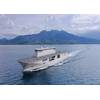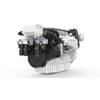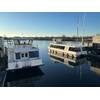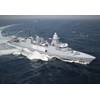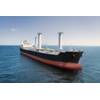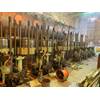DNVPS has warned that cat fines levels are increasing year by year. Lower sulphur marine fuels have even higher cat fines levels than typical heavy fuel oils (HFO). The ExxonMobil MobilGard lube oil monitoring service, concludes that 43 percent of all ships “have a potentially catastrophic issue with cat fines,” based on testing more than 400,000 marine diesel oil samples. So, cat fines are a very serious threat to every ship burning heavy fuel oils.
What is the solution? Many have studied this serious problem, and all have come to the same basic conclusion: eliminating the 3 to 5 micron cat fines (and larger) will prevent the cat fines from damaging fuel injection pumps, fuel injectors, piston rings, pistons, cylinder liners, exhaust valve seats and stuffing box seals. This has been known for some time.
Now comes the difficult part: removing the 3 to 5 micron cat fines particles from marine heavy fuels, while demonstrating long service life. Centrifuges and metal mesh filters have tried for decades and decades, unsuccessfully.
Our company JB Filtration, llc has accepted this challenge and has designed and developed a fine filter cartridge to remove these critical cat fines particles, while providing an insensitivity to asphaltines. Next, we had to determine its service life, so we equipped two 900mm Sulzer diesel engines with these added cat fines filters and trialed them for years. The results were very encouraging. These unique cat fines filters operated for more than 2,000 hours without any service at all. Then, by simply changing out these low cost filter cartridges, they operated for another 2,000-plus hours. But, most important of all, there was no longer high cat fines engine damages.
Lastly, even though the first cost of these cat fines filters was reasonable, in fact, these filters provided yet another surprise. They would pay back their original cost in a year. How is this possible? It seems that after these filters were added to the normal centrifuge / auto filter system, they significantly reduced the overall fuel's particulate burden, which reduced the normal wear rates that were expected of several critical diesel engine components. We found significant normal wear rate reductions for injectors, injection pumps, piston rings, pistons, exhaust valve seats and cylinder liners. Therefore, by combining the reduced repair labor costs, with the reduced parts costs, we were able to achieve a one year filter payback.
Additionally, the ships that have installed exhaust gas scrubbers should take notice that ship main diesel engines are still subject to catastrophic cat fines damage. Scrubbers offer no cat fines protection to main diesel engines. They will still require a cat fines filter to gain protection.
• 

